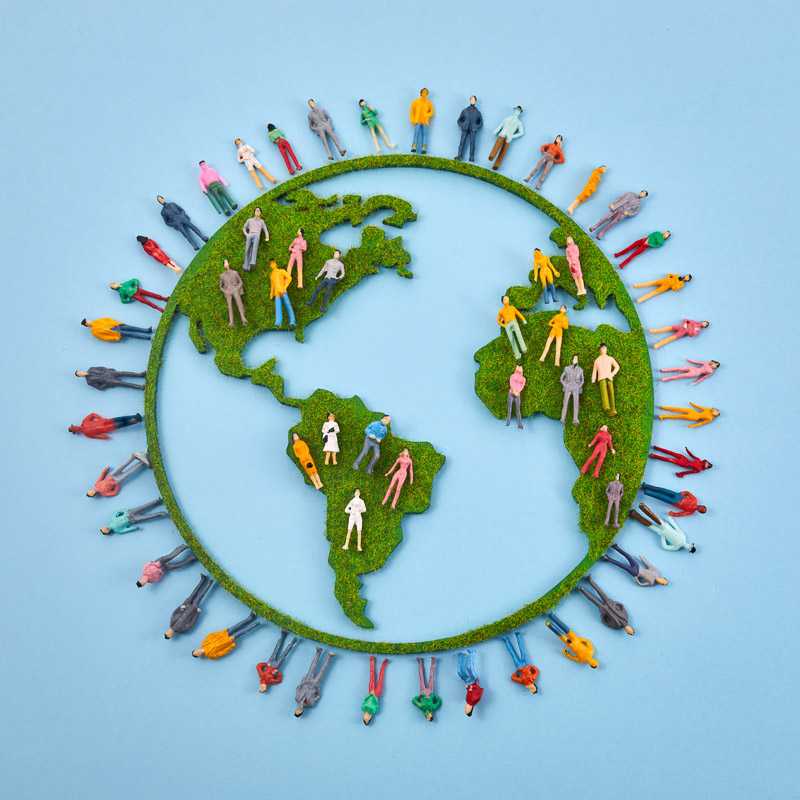

I wrote back in January that 2024 sets a record for the largest number of votes ever cast in democratic elections in a single year. The world’s four biggest democracies, India, Indonesia, the United States and Pakistan, all went to the polls, as did 27 EU member states electing the new European Parliament; one estimate had it that this year has seen or will see elections in more than 70 countries inhabited by half the human race.
The results of the elections so far have been remarkably poor for incumbent governments. The defeats of Vice President Kamala Harris in the United States and of the Conservatives in Great Britain were dramatic shifts; but there were also cases like Narendra Modi in India, Shigeru Ishiba in Japan, Cyril Ramaphosa in South Africa and Emmanuel Macron in France, who limp on in power, despite an electoral drubbing.
The Financial Times, in a 7 November article, described the election results of 2024 as “a graveyard for incumbents.” Every single political party defending their record in government in the last twelve months lost vote share, some catastrophically; the U.S. Democratic Party’s slippage of 3.7 percentage points is comparatively mild compared to the British Conservatives, who declined by almost 20% from their 2019 vote. This is unprecedented since reliable records began in 1905. Some countries have swung right (such as the United States), some have swung left (such as the UK and South Korea) and some in both directions simultaneously (France). But all have swung against the incumbents.
Some less democratic governments, such as Algeria, Azerbaijan or Rwanda, did see vote share for their political proxies improve in heavily managed elections. But there were exceptions even here. Sheikh Hasina, the prime minister of Bangladesh, was re-elected in January in a flawed process but with a smaller margin than previously; by September, she had been ousted in a wave of popular protest. In Iran, when President Ebrahim Raisi was killed in a helicopter crash, reformist candidate Masoud Pezeshkian was elected to succeed him in July despite a system stacked to favour those aligned with the powerful Council of Guardians.
Commentators have focussed on the sluggish global economy to explain the poor results for incumbent governments worldwide. Mexico, an outlier in that Claudia Sheinbaum was elected president in June with the blessing of her predecessor Andrés Manuel López Obrador and also with a bigger vote share than he had achieved in 2018, is also an outlier in its positive economic performance compared to its competitors. The Irish government, with public finances sweetened by an unexpected tax windfall, is also looking good for re-election on 29 November. Is it the economy, stupid?
It is true that global business is still suffering from a form of “long COVID,” reacting to both the stress induced by the pandemic and to new expectations from consumers and employees. It’s also true that the war in Ukraine since 2022 has driven up prices for food and some commodities, while the Middle East conflict that erupted in 2023 has hit supply chains due to the increased risk of shipping through the Red Sea.
But this cannot explain it all. In the wake of the 2008 financial crisis, Jean-Claude Juncker, then the prime minister of Luxembourg, famously complained that “we know what to do—we just don’t know how to get re-elected afterwards.” It turned out that he did in fact know how—he won re-election in 2009, before losing in 2013 and getting sent to Brussels as president of the European Commission. Statistically speaking, 2024 has been a much more difficult time to be in government than 16 years ago.
Another issue, immigration, is often cited as an area where governments were failing to deliver on the expectations of voters. Again, this cannot be the whole story. In Europe, at least, the migration crisis peaked in 2015, two full electoral cycles ago for most governments. Those driven from their homes by the Ukraine war since 2022 have generally been greeted warmly and have not outstayed their welcome. Concerns about immigration seem to be based more on the sense that while the average voter is hurting economically, there are some undeserved beneficiaries—even if this narrative has little factual basis.
And maybe that is getting to the fundamental shift that has happened in how people get news and experience politics, with the rise of social media and the downfall of traditional outlets. A September 2024 Pew Research Center survey found that 58% of Americans prefer to read news on a digital device, way ahead of TV (32%), let alone radio (6%) or print (4%). Facebook and YouTube are the most popular online platforms, but the likes of TikTok and TruthSocial are not far behind. Surveys elsewhere in the world reveal much the same.
And it’s not just that people are getting their news online; they are getting different news depending on their political preferences. It has become trivially easy, with the help of the content algorithms of the main platforms, to curate an echo chamber of information, where you get only the stories that support your own worldview and tune out anything challenging. The shared epistemic community of the past, where a dominant media narrative based on objective and fact-checked reporting could be taken for granted, has disintegrated.
It is easy to kick out incumbent politicians who have not mastered the new need for new style communication. But the new powerholders, many of whom won by comparatively fragile margins, will face the same challenge themselves when their terms are up in four or five years, and will also be subject to the same merciless scrutiny by the online hordes. To quote the musical Hamilton, “winning was easy… governing is harder.” The new norm may be a frequent rotation of insecure but hardline governments, facing scrutiny from the TikTok generation. We live in interesting times.


